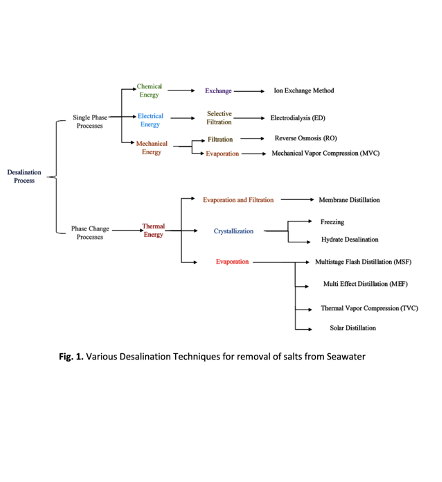Desalination of Seawater through Gas Hydrate Process: An Overview
Keywords:
Desalination , Freshwater, Gas hydrate, Hydrate desalination, PromoterAbstract
Potable water shortage affects more than 80 countries and 40% of the world population. It is predictedthat over 60% of the human population would be exposed to water shortage by the end of 2020. Marine water represents an infinite water source since 98% of all global water is present in the form of oceans; therefore, seawater desalination is the most logical approach to meet freshwater demands. Currently, two dominant desalination methods are widely applicable includes reverse osmosis and multi-stage flashdistillation. Although these technologies have been proven to be reasonably efficient, they still have some disadvantages, i.e., high capital investment or not feasible for minor scale. To overcome the limitations of the existing techniques, new technologies like Electro deionization(EDI), Freeze Separation (FS), Vacuum Compression Distillation (VCD) and Freezing with Hydrates (FH) must be seeking as future applications. Some recent researchers have highlighted the desalination with hydrates can produce cheaper desalted water than the existing available technologies. This study provides a brief review of the recent researches accomplished on the desalination of saline water through gas hydrate technology. It is evident from the literature that small amountof additives or hydrate promoters either significantly enhance the thermodynamic conditions of hydrate formation above the freezing point of water or increase the hydrate crystallizationby improving the hydrate formation rates. This review paper will provide the roadmap for the potential application of hydrate technology in the field of water desalination.
Downloads





























